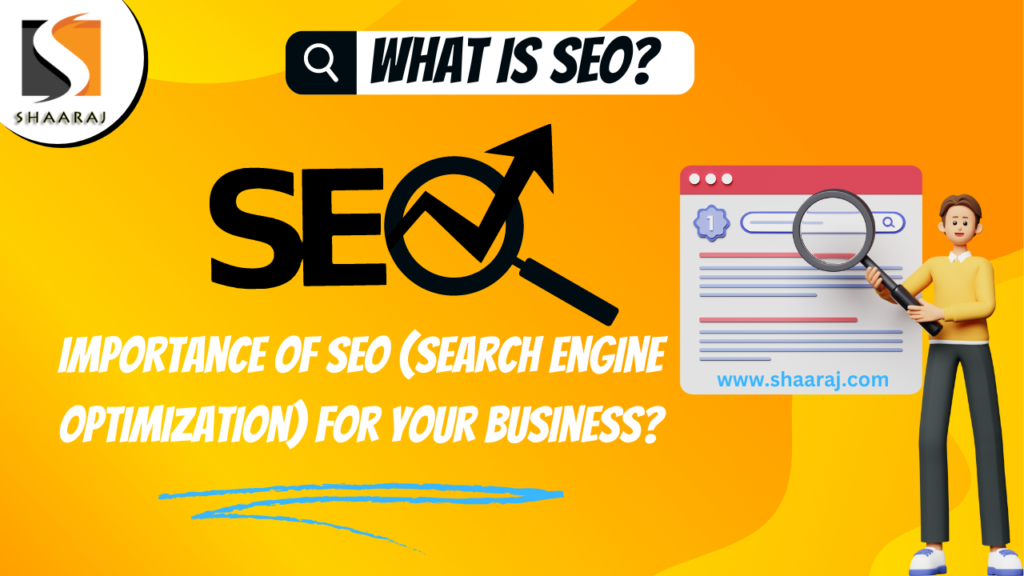What is SEO?

Search engine optimization is the process of making your site better for search engines.
When you built your website, you likely created it with your users in mind, trying to make it easy for them to find and explore your content. One of those users is a search engine, which helps people discover your content. SEO—short for search engine optimization—is about helping search engines understand your content, and helping users find your site and make a decision about whether they should visit your site through a search engine.
– Google
SEO (Search Engine Optimization) tools are software applications and platforms designed to assist in optimizing websites for search engines. These tools provide insights, data, and recommendations that help improve a website’s visibility in search engine results pages (SERPs). Here are some of the key functions of SEO tools:
1. Keyword Research
Identifying the words and phrases that potential customers use to search for products, services, or information.
2. On-Page SEO
Optimizing individual web pages to rank higher, which includes using keywords, improving meta tags, headings, and content.
3. Off-Page SEO
Building a website’s reputation and authority through backlinks, social media engagement, and other external factors.
4. Technical SEO
Ensuring that a website meets the technical requirements of search engines, such as having a fast loading speed, mobile-friendliness, secure HTTPS connections, and a well-structured site architecture.
5. Content Creation
Producing high-quality, relevant content that meets the needs and interests of the target audience.
Shaaraj: The Leading Digital Marketing and PR Agency in Lucknow for Innovative Solutions
Importance of SEO for Your Business
1. Increased Visibility and Traffic
- Higher rankings in search engine results lead to increased visibility, which drives more organic traffic to your website.
- More traffic can result in more leads, sales, and conversions.
2. Credibility and Trust
- Websites that appear on the first page of search results are often perceived as more credible and trustworthy.
- Effective SEO can help build brand authority and recognition.
3. Better User Experience
- SEO involves optimizing your website’s structure and content, which improves user experience.
- A well-optimized website is easy to navigate, loads quickly, and is mobile-friendly.
4. Cost-Effective Marketing
- Compared to paid advertising, SEO is cost-effective because it targets users who are actively searching for your products or services.
- Organic traffic from SEO is essentially free, unlike PPC (pay-per-click) advertising.
5. Competitive Advantage
- Investing in SEO can give your business a competitive edge by outranking competitors in search results.
- Staying ahead of competitors in search visibility can lead to capturing a larger market share.
6. Local SEO Benefits
- For businesses with a physical location or that serve specific geographic areas, local SEO is crucial.
- Optimizing for local search terms and using tools like Google My Business can drive local traffic and increase in-store visits or local service inquiries.
7. Long-Term Results
- SEO efforts can lead to long-term benefits as opposed to short-term gains from paid advertising.
- Once your website ranks well, it can maintain its position with regular updates and continuous optimization.
8. Measurable Results
- SEO tools and analytics allow you to track the effectiveness of your SEO strategies.
- Metrics such as traffic, ranking positions, and conversions help in assessing the ROI of your SEO efforts.
In summary, SEO is a vital digital marketing strategy that helps improve your website’s visibility in search engine results, attracting more organic traffic, enhancing credibility, and providing a better user experience. For businesses, investing in SEO can lead to increased online presence, higher customer engagement, and ultimately, better business growth and profitability.
Read Google Blogs On SEO:
If you are looking for Services then contact us :
What Is SEO (Search Engine Optimization)
SEO is a vital digital marketing strategy that helps improve your website’s visibility in search engine results, attracting more organic traffic, enhancing credibility, and providing a better user experience. For businesses, investing in SEO can lead to increased online presence, higher customer engagement, and ultimately, better business growth and profitability.
What are functionality of SEO tools?
Here are some of the key functions of SEO tools: 1. Keyword Research 2. On-Page SEO 3. Off-Page SEO 4. Technical SEE 5. Content Creation
What is technical SEO?
Ensuring that a website meets the technical requirements of search engines, such as having a fast loading speed, mobile-friendliness, secure HTTPS connections, and a well-structured site architecture.
What is Off-Page SEO?
Building a website’s reputation and authority through backlinks, social media engagement, and other external factors.
What Is On-Page SEO?
Optimizing individual web pages to rank higher, which includes using keywords, improving meta tags, headings, and content.


